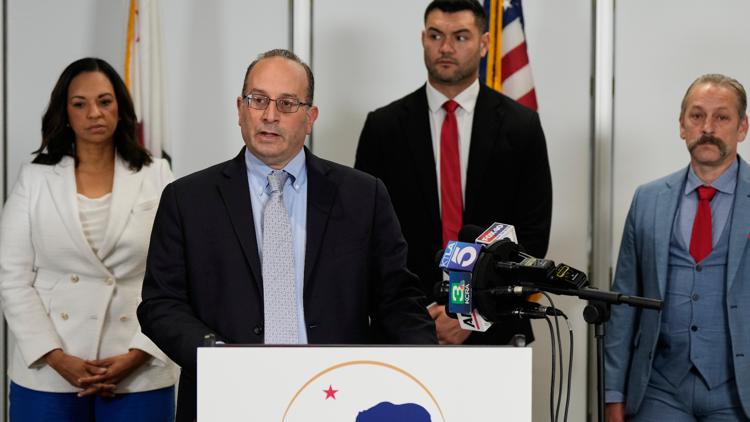California Republicans challenge new congressional map approved by voters

California Republicans filed a federal lawsuit Wednesday seeking to overturn a newly approved U.S. House map that voters passed at the ballot box.
The measure, known as Proposition 50 and backed by Democratic Gov. Gavin Newsom, is intended to give Democrats an edge in flipping up to five congressional seats in the 2026 midterm elections. The lawsuit, funded by the National Republican Congressional Committee, argues that mapmakers improperly used race to benefit Hispanic voters “without justification or evidence,” and asks the court to block the new district boundaries before the next election cycle.
Filed in the U.S. District Court for the Central District of California by The Dhillon Law Group — a firm founded by Harmeet Dhillon, now a U.S. Justice Department civil rights official — the suit cites Supreme Court precedent prohibiting states from drawing voting districts based on race without a compelling, evidence-based reason.
Republicans claim two separate analyses showed there were no voting rights issues that warranted redrawing the map. They also allege that state officials and consultants publicly acknowledged designing certain districts to ensure Latino majorities. A press release from Democratic lawmakers, the suit notes, stated that the new map “retains and expands Voting Rights Act districts that empower Latino voters,” while leaving Black-majority districts in Los Angeles and Oakland unchanged.
“The map favors one racial group of California voters over others,” said Mike Columbo, who filed the suit along with a GOP state legislator and 18 other voters. “That violates the 14th Amendment’s equal protection clause and the 15th Amendment’s voting rights protections.”
Mapmaking consultant Paul Mitchell declined to comment, citing ongoing litigation.
Newsom’s office responded on social media that it has not yet reviewed the lawsuit but remains confident it will not succeed, adding bluntly: “Good luck, losers.”
Democrats argue the measure counters Texas Republicans’ own redistricting plan, which aims to gain five additional GOP-held seats at former President Trump’s urging.
It remains uncertain whether a three-judge panel will issue a temporary restraining order before Dec. 19, when candidates can begin gathering signatures to qualify for the ballot. Columbo said he expects a ruling within weeks and anticipates the case could ultimately reach the Supreme Court.
Republicans have filed several similar challenges to Democratic redistricting plans in California, but none have yet prevailed.

